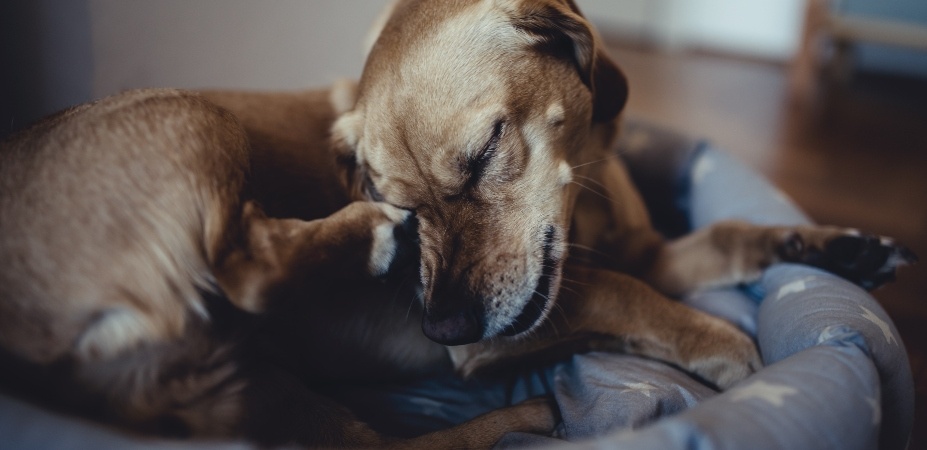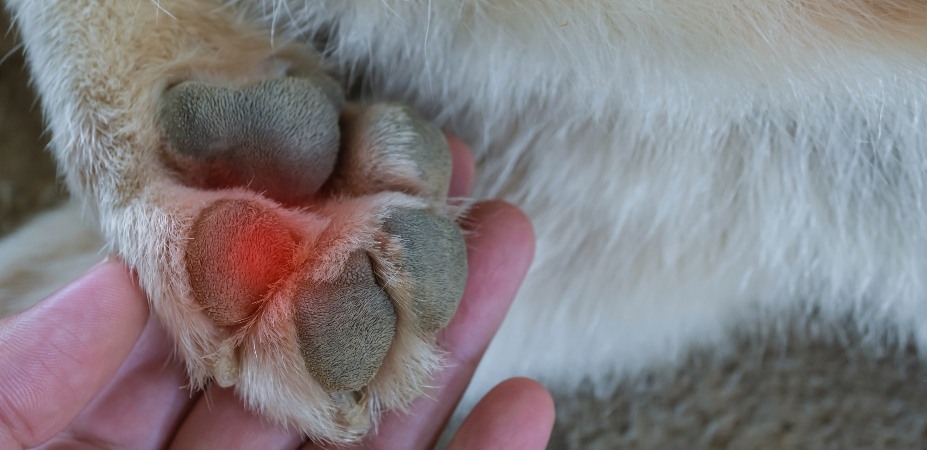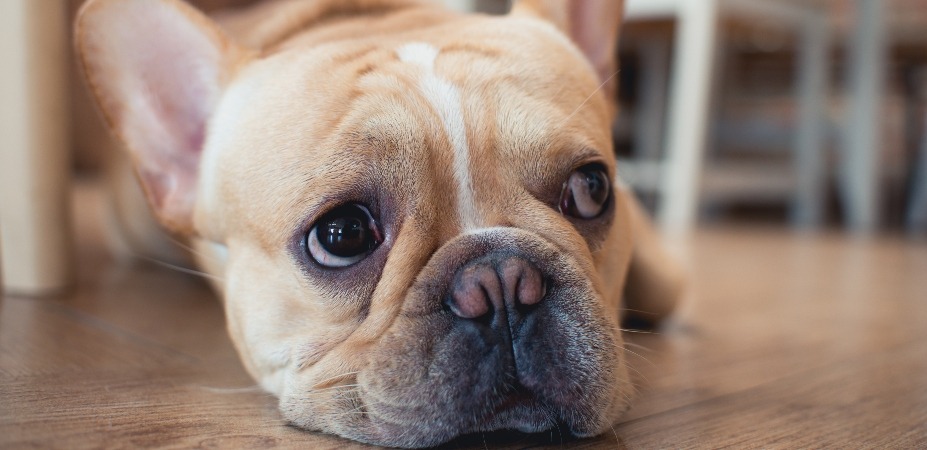Why Do Dogs Lick Their Paws? 6 Causes Explained
Furry friends always manage to fascinate us with their quirky mannerisms. From spontaneous barking sessions to intense tail chases, the causes of our pups’ tendencies are not always straightforward. For many dogs, paw licking is a common curious behavior with a wide variety of potential explanations. We’ve outlined the many reasons why dogs lick their paws and how this habit could relate to their overall health.
#1: Self-Grooming Habits
When you think of pets dedicated to self-grooming, dogs might not be the first animals that come to mind. However, dogs regularly lick their legs, paws, and tail to remove debris. This is a normal, healthy behavior and sign your furry friend wants to be clean (even if their antics suggest otherwise during bathtime!). Constant paw licking, on the other hand, warrants a closer look.
#2: Skin Irritation
Dry or itchy skin is one of the most prevalent reasons why your pup may be licking their paws excessively. Skin irritation and dry dog paws often result from environmental allergies. Certain grasses, weeds, and dust can all trigger allergic reactions in dogs, and your best friend may lick their paws vigorously to relieve the itchy sensation. Additional symptoms including sneezing, swollen eyes, or a runny nose are telltale signs your dog suffers from allergies.
Keeping your dog clean could help alleviate environmental allergy-related symptoms. To confirm whether your pet has an environmental allergy, please consult your veterinarian.

#3: Food Allergies
Just as some humans with food allergies may experience an itchy throat, many dogs feel a similar uncomfortable sensation on their paws. Dog foods and treats with ingredients such as dairy, wheat, soy, beef, or chicken can trigger allergic reactions and tempt your dog to “scratch the itch” by licking their paws excessively. If your pup only displays this behavior following mealtimes or after eating certain foods, allergies may be to blame.
Consult your veterinarian if you suspect your dog has food allergies, and they will help you choose an appropriate diet for your pup’s needs. Always look at the label on dog foods and treats, avoiding ingredients that could trigger allergies.
#4: Aches or Pains
Dogs often lick their wounds to manage pain. Licking the same one paw may be a sign your pooch is coping with an injury such as a sting, cut, bite, ingrown nail, puncture, or burn. Check your dog’s toes for anything out of the ordinary, treating small wounds with a pet first aid kit and thoroughly washing the affected area. We recommend seeking professional advice if you notice an injury.
Arthritis is another common pain-related reason for licking. Even though this joint condition usually causes pain in multiple areas, dogs frequently lick one of their paws to cope with achiness, according to the American Kennel Club. Your veterinarian can help manage your dog’s arthritis and provide a solution that may reduce discomfort.

#5: Boredom or Separation Anxiety
When your best friend isn’t snoozing or happily spending the day by your side, they’re probably waiting for you to come home. Boredom and separation anxiety could lead to excessive licking as well as other unhealthy habits including barking, digging, or destructive chewing.
Give your pooch access to items that will help them feel comfortable when they’re home alone, such as their favorite blanket or a fun dog chew toy. These objects will discourage your dog from licking paws excessively and keep them entertained.

#6: Parasites
Dogs explore the world on four legs, so their paws are naturally the first spot many parasitic critters settle. Fleas, ticks, lice, and mites can all irritate your furry friend’s skin and cause your dog to lick the infested area. Although parasites may be primarily concentrated on one paw, licking or scratching multiple body parts is a common sign your dog is dealing with these pests.
Carefully inspect your dog’s skin for pests and seek guidance from your veterinarian to help remedy the issue. Many parasites reside in grassy or wooded areas, so you may want to change your routine if your dog regularly encounters these landscapes on walks or during playtime.
Managing Bacterial or Yeast Infections
Although there are multiple reasons why dogs lick their paws constantly, it’s always critical to act quickly. Frequent licking builds up moisture in a dog’s paws that can lead to a bacterial or yeast infection, according to the American Kennel Club. These issues only aggravate paw licking and may cause swelling or redness. Work with your veterinarian to diagnose and treat bacterial yeast infections.
Remember, occasional licking is perfectly healthy and can even help your dog stay clean. If your best friend seems to lick incessantly, though, you should identify and address any issues so you can spend less time worrying and get back to the activities you love together!

